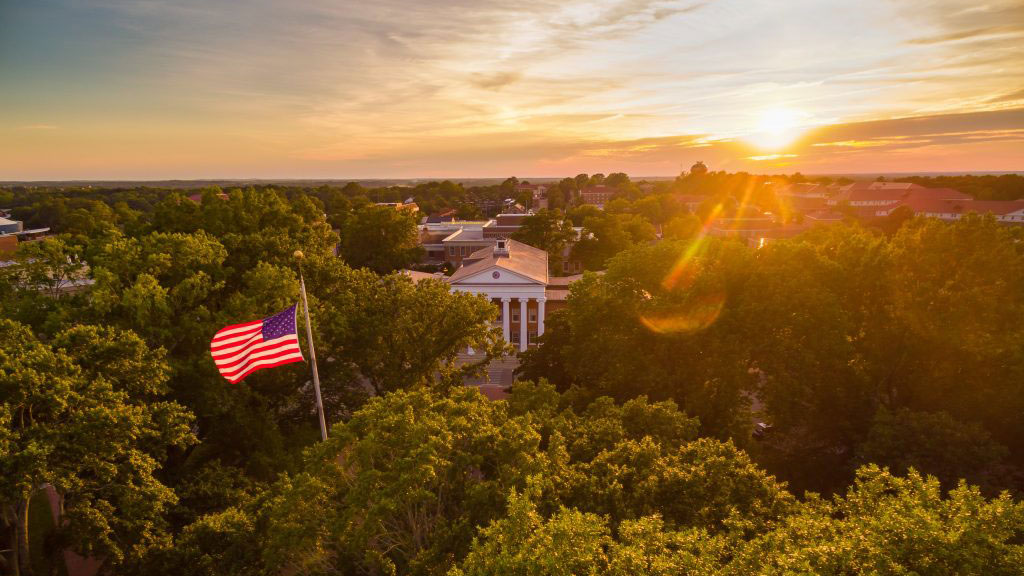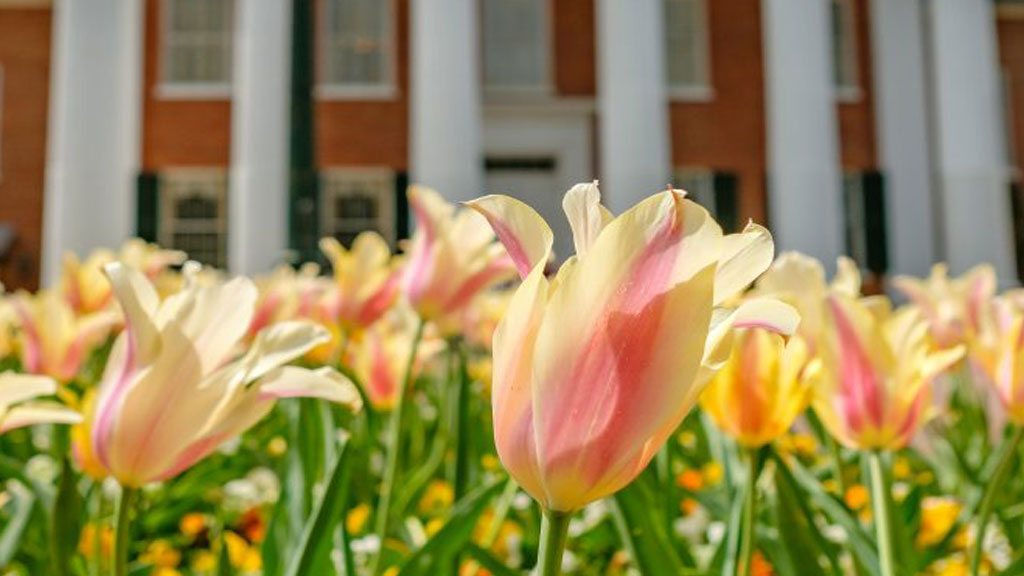Morgan Blythe builds a future in social work from a foundation of faith
Like many students, graduating senior Morgan Blythe worked part-time jobs during college – as a barista and babysitter – but along her journey at the University of Mississippi, she discovered her deep religious faith would be the perfect foundation for a career in social work as a full-time advocate.
She began her studies as a psychology major and her campus life as an active member of Delta Gamma sorority and the Baptist Student Union. Through her campus ministry, she found an opportunity to bring the love and compassion professed in the Gospels she followed to communities abroad.
“I had a friend that served in Thailand with a nonprofit organization, and she’s the one that told me about this project,” she said. “I traveled there for the summer as an intern with a nonprofit organization called Dton Naam.”
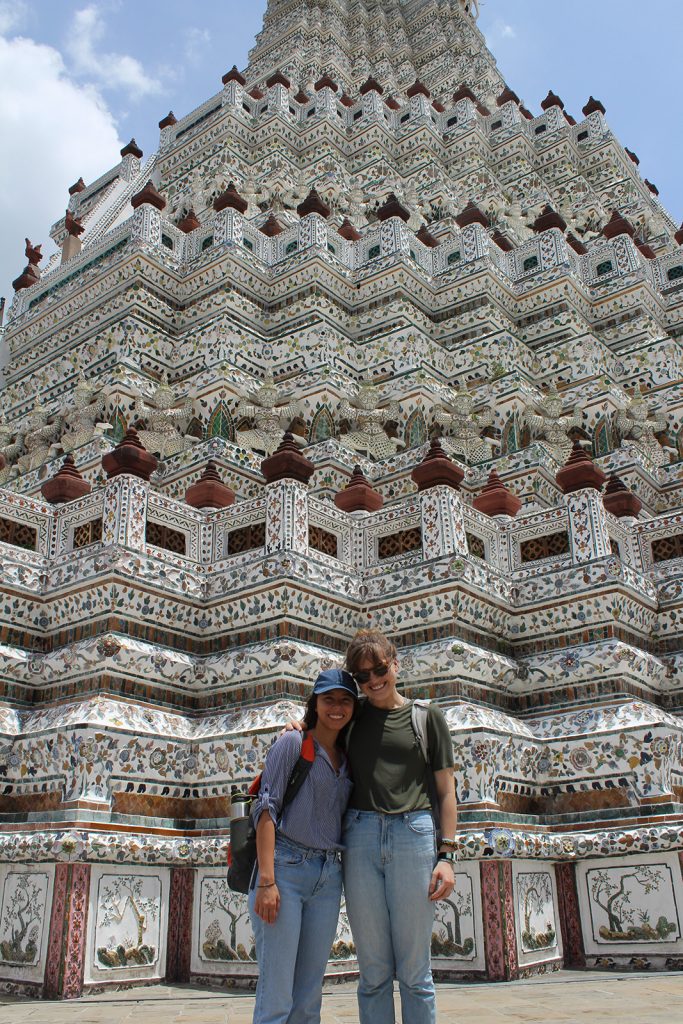
Blythe met a social worker during her experience in Thailand who concreted her decision to switch her major to social work.
“This social worker – she cared for others so deeply and was very inspiring,” Blythe recalled. “Just to see how you can be in an environment that is filled with hurting, pain and exploitation and still provide needed services with compassion and with love. To me, she embodied all of these values of social work – of social justice, of dignity and worth of people and the importance of relationships.
“Dton Naam’s mission is geared toward providing holistic healing for transgendered sex workers. It is just incredible, and what they’re doing is so needed; it’s fulfilling a need in that community.”
Blythe said her experiences in the social work program and traveling abroad helped refine an understanding of her own privilege while growing up.
“I began to understand it more once I was here,” Blythe said. “It was a process of understanding my privilege as a white American citizen and what that means: to have privilege and not to have to think about being able to take myself out of marginalization or oppression.
“I don’t have to necessarily think about it because I have the privilege to take myself out of it, but minorities and other marginalized and oppressed groups; they don’t have that same luxury. That, in and of itself, is privilege.
“I’ve acknowledged my own privilege and biases in how I see the world around me. It’s really affected the way I see other cultures as well.”
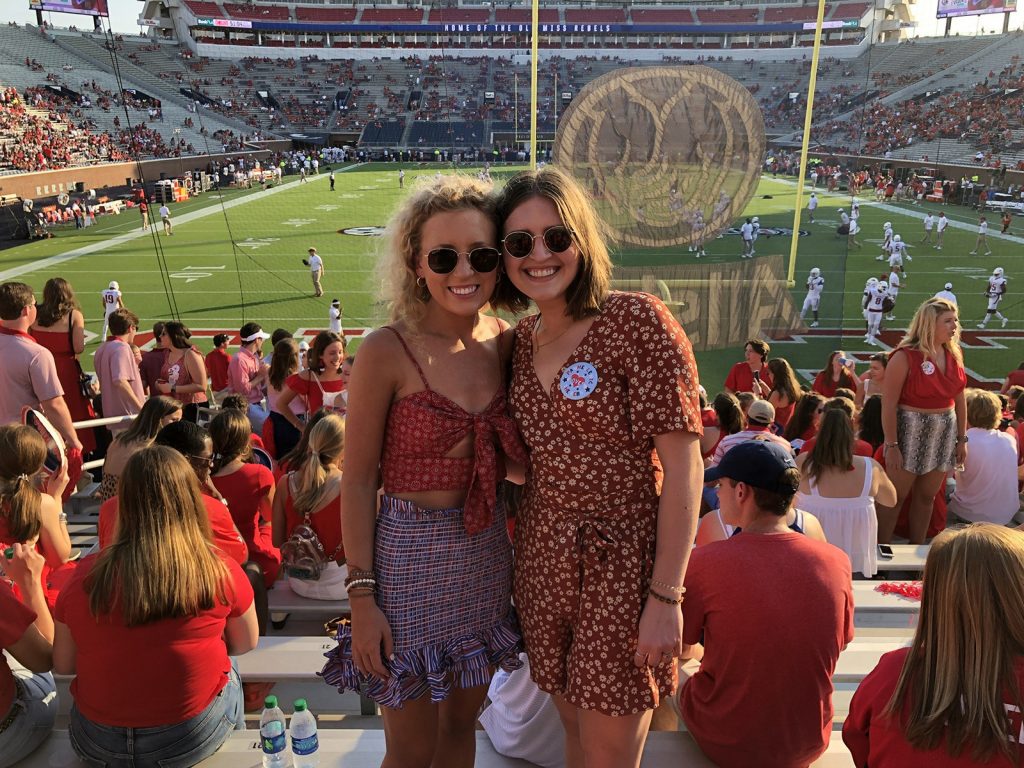
Ellie Demoss (left) and Blythe at a football game during the Fall 2019 season 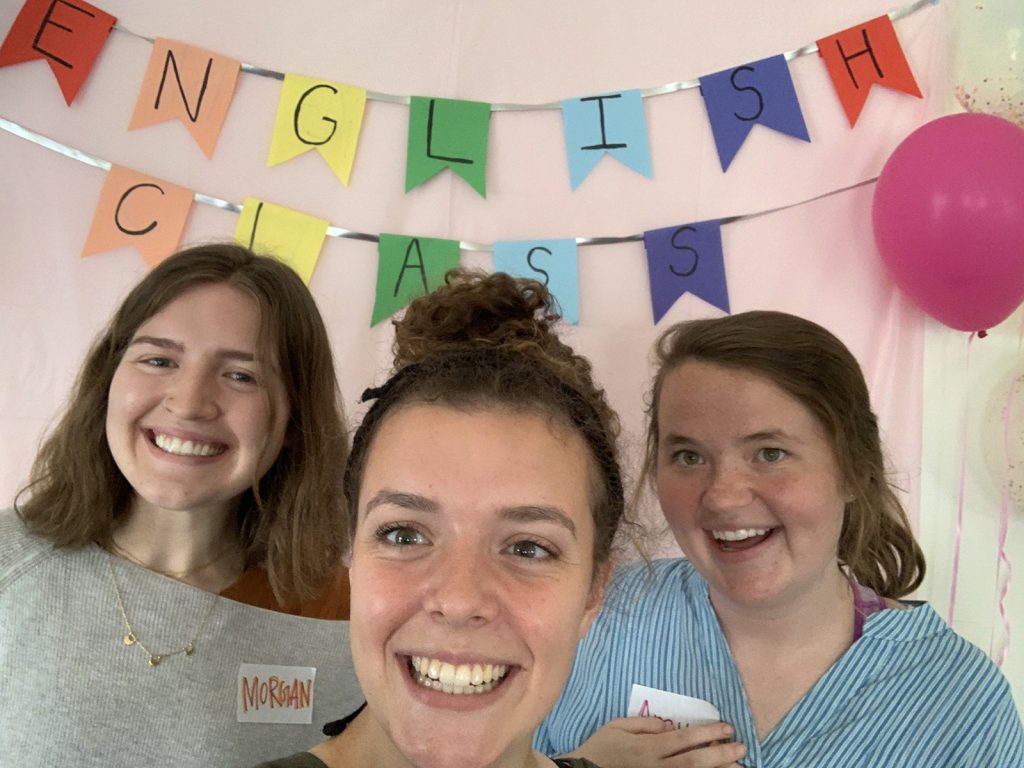
First day of class at the community center. Blythe (left), Ashton Porter (middle), and Amy Chance (right). 
Last English Corner for the Spring 2019 semester at the Baptist Student Union.
Social work is focused on improving the lives of individuals and families by examining environmental contexts – the things that influence individual functioning, family functioning and group functioning – and not resting the problem solely on the individual, said Desiree Stepteau Watson, director of the UM bachelor’s program in social work.
Studying social work in Mississippi provides a unique opportunity for students to understand the grand challenges marginalized communities are facing, she said.
“The kinds of problems and issues that people face, like poverty and stigma, discrimination, mental illness – some of those issues are related directly with the history of Mississippi,” Watson said.
Even before her trip to Thailand, Blythe was interested in understanding the experiences and needs of marginalized communities. During her freshman year in the Sally McDonnell Barksdale Honors College, she was inspired by the university’s Common Reading selection, “Ten Little Indians,” and its application to the question for the Honors College’s freshman ventures experience that year: “What does the majority owe the minority?”
“We visited the Pacific Northwest region to explore the question by interviewing Native Americans who were willing to share stories about their culture in the context of the region and their feelings about the Northwest Pipeline,” Blythe said.
Later, after her first experience abroad, Blythe developed a passion for outreach to international communities. She was a global ambassador for two years with the Office of International Programs, offering friendship and support to international students while helping them adjust to and connect with campus.
She also served as vice president of the Ole Miss chapter of the International Justice Mission, a human rights agency that secures justice for victims of modern slavery, sexual exploitation and other forms of violent oppression.
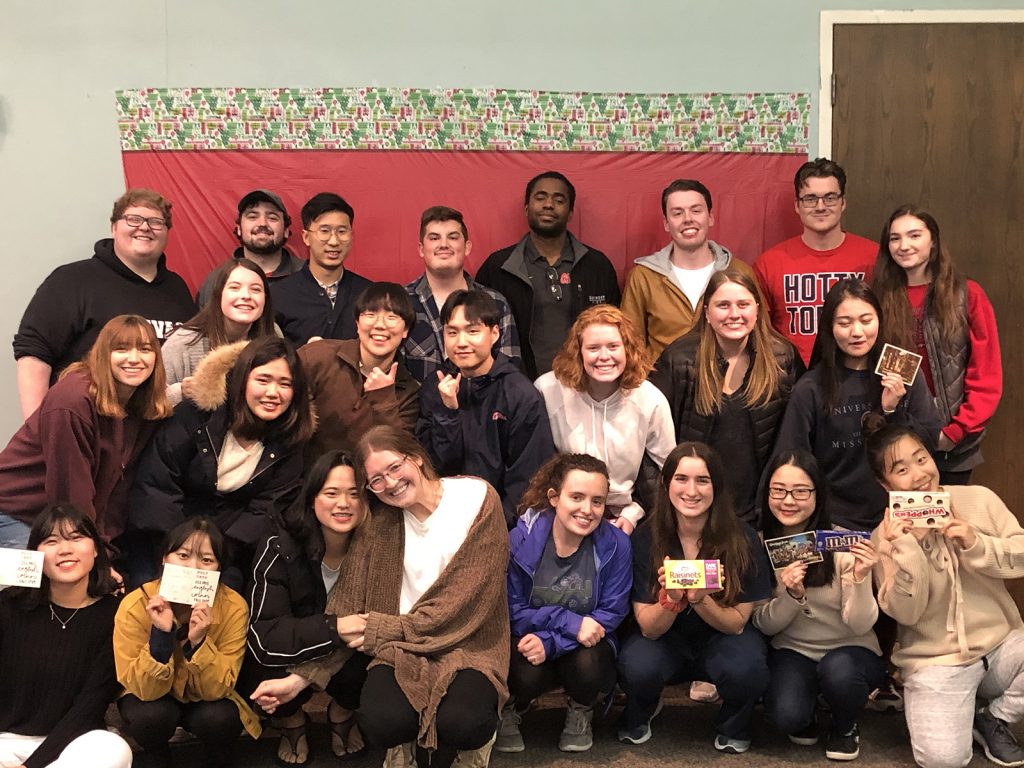
During the spring of Blythe’s junior year, representatives of the international Christian Community Center contacted the Baptist Student Union for volunteers to teach English to refugees in the Middle East. Blythe and classmate Amy Chance jumped at the opportunity to practice their social work skills while teaching over the summer.
“It wasn’t just refugees; anyone in the community could come,” Blythe said. “We had a young girl, around 10, all the way up to, like, 60 years old, so different levels that we taught.
“We’re not professionals by any means, but it was more a mutually beneficial relationship: they taught us Arabic, and we taught them English. They just had a need to be filled, and so we went and volunteered.”
The breadth of her experiences abroad and with international students at Ole Miss inspired the research topic for her Honors College thesis. Under the supervision of Na Youn Lee, assistant professor of social work, Blythe conducted a study on how microaggressions against international students can affect their experiences at the university.
She presented findings from her literature review to hundreds of social work educators at the 2019 Alabama-Mississippi Conference, hosted by the Department of Social Work in October, and to social work educators and students attending the department’s annual Diversity Conference in February.
“From the study, we learned that racialization was embedded in the experiences of international students on campus,” Lee said. “While this finding may not seem surprising, it was not so apparent in the process of data collection.
“She found that even when international students initially denied having experienced racism, discrimination or microaggression, they would share with her stories that would fit under the categories of microaggression or racialized experiences.”
Lee described Blythe’s self-motivation, organization and positive response to constructive criticism as central to the study’s success.
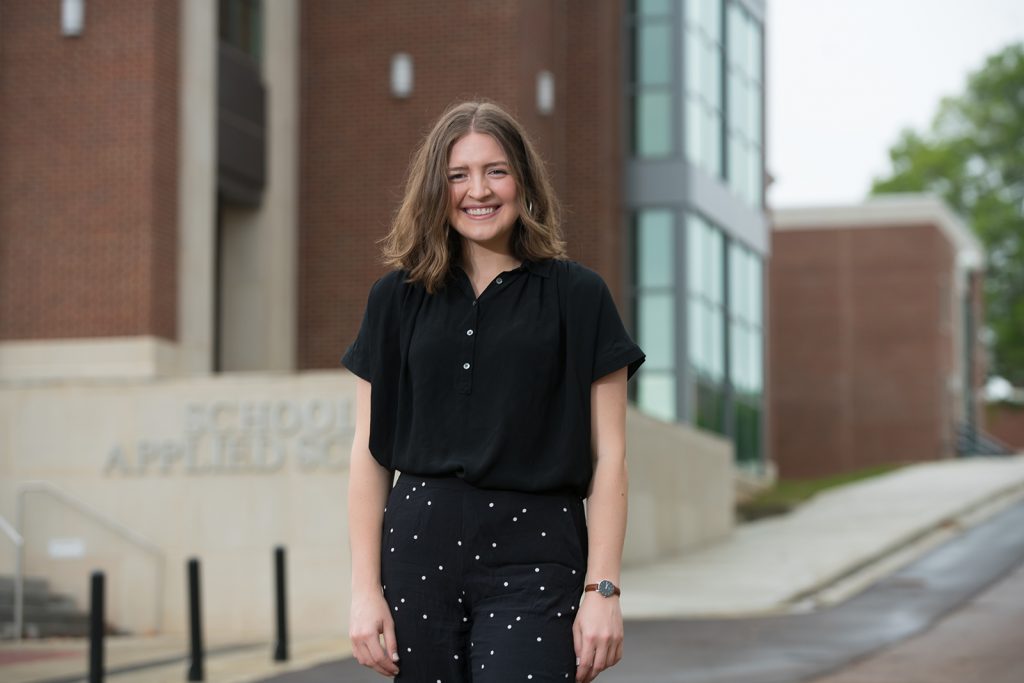
“She would immediately incorporate feedback from advisers and was punctual and organized in everything she did,” said Lee, noting that Blythe completed all the required paperwork and got approvals for the study with little guidance.
“She taught herself how to use the NVivo software to code her data. Thus, I was able to come in when she had the basic coding done, and we were able to jump right in for data analysis. She’s a truly exceptional undergraduate student.”
Blythe has been accepted to the master’s program in social work at Columbia University and hopes to use that experience to continue traveling and training for a licensed practice in international social work and immigration. She follows the Ole Miss program’s first student accepted into Columbia’s master’s program, Victoria Narezo, who is working with human trafficking victims at Mount Sinai through the International Rescue Committee.
“Columbia is also my alma mater,” Lee said. “That was why it was so special to me that both Victoria and Morgan, once my students, will now become my alumnae.”
Blythe encourages future Ole Miss Rebels to get involved in advocacy work.
“There are so, so many opportunities to plug in and to serve, to acknowledge those around you who are hurting, oppressed, marginalized or in need of advocacy,” she said.
By Sarah Sapp/School of Applied Sciences

